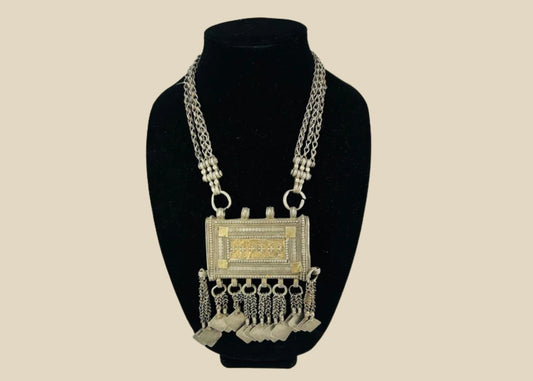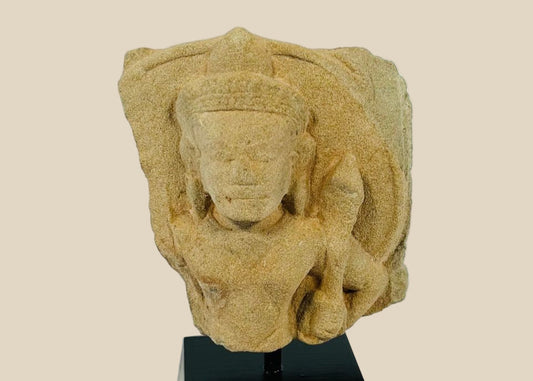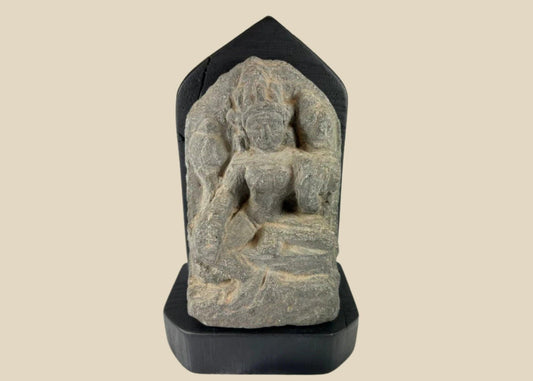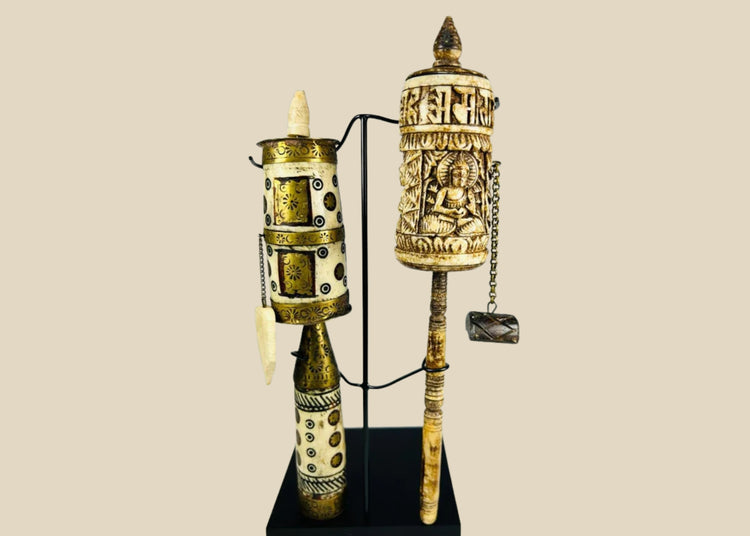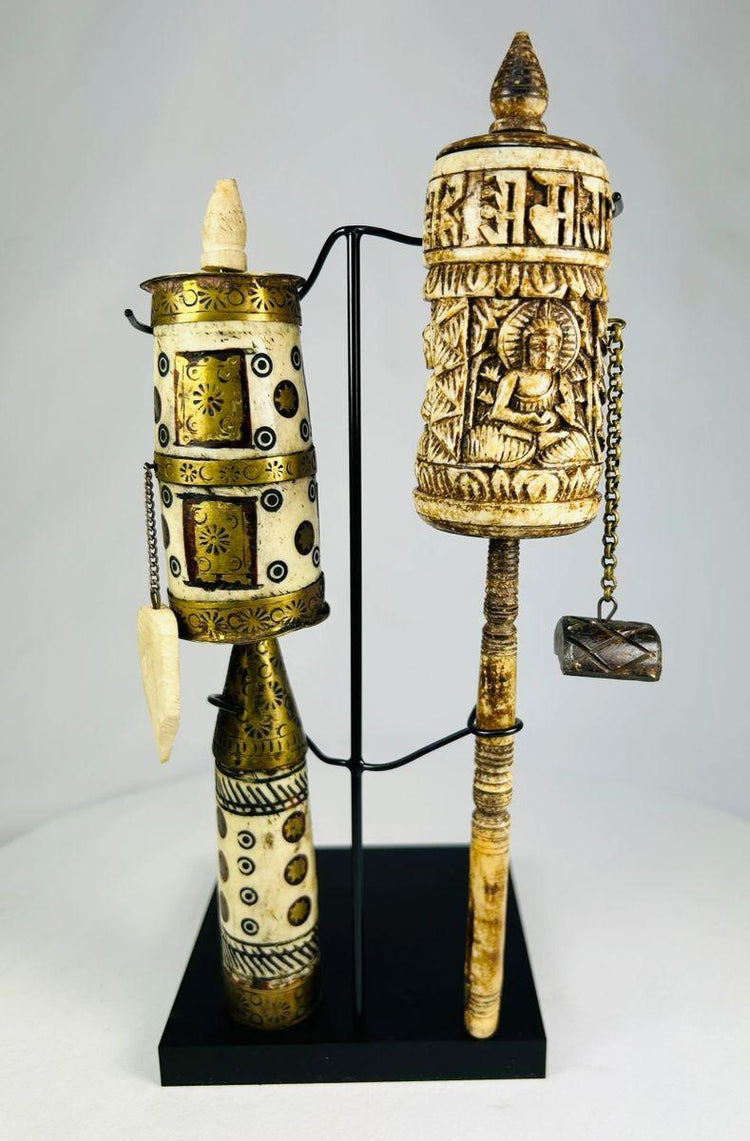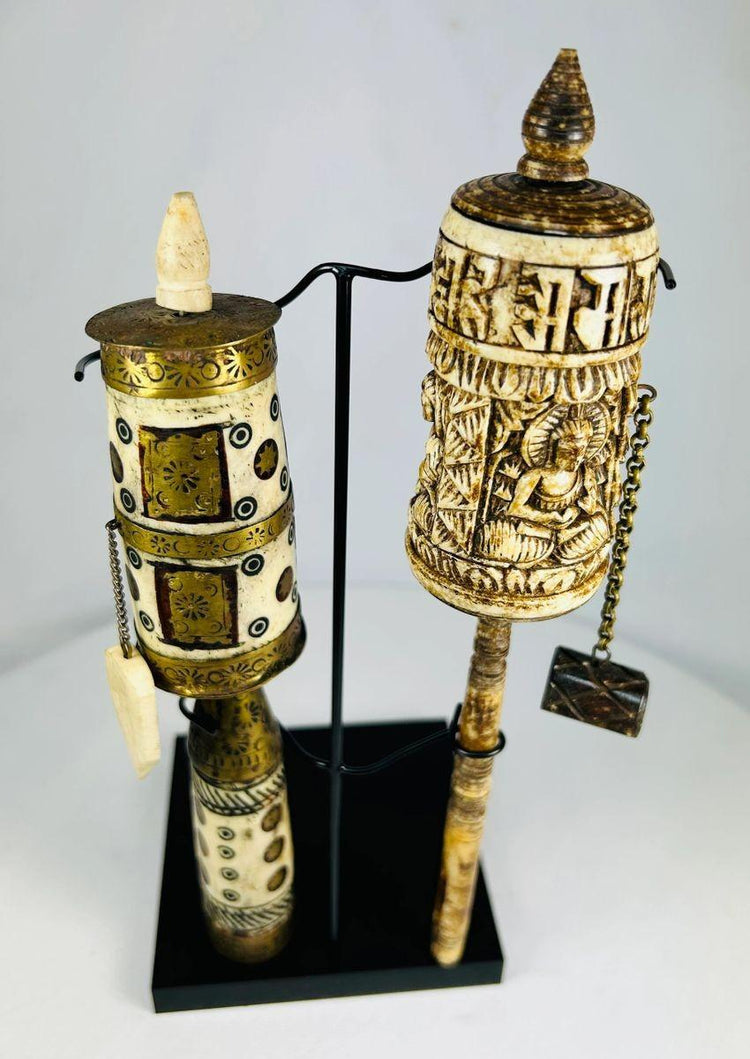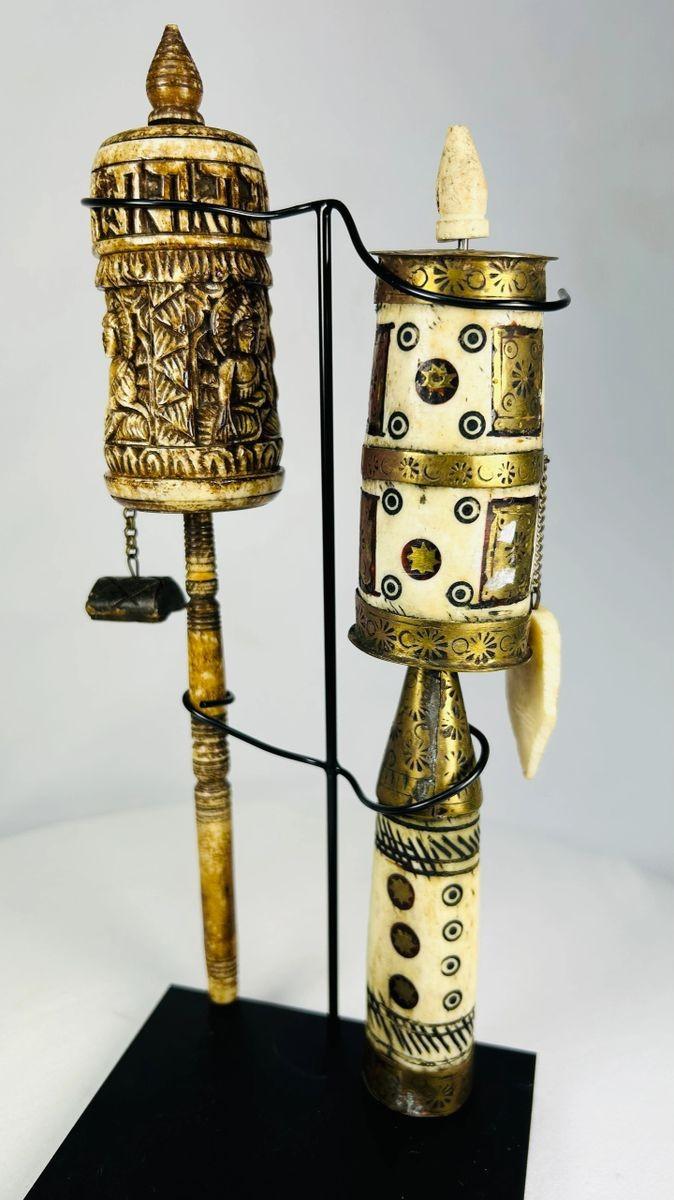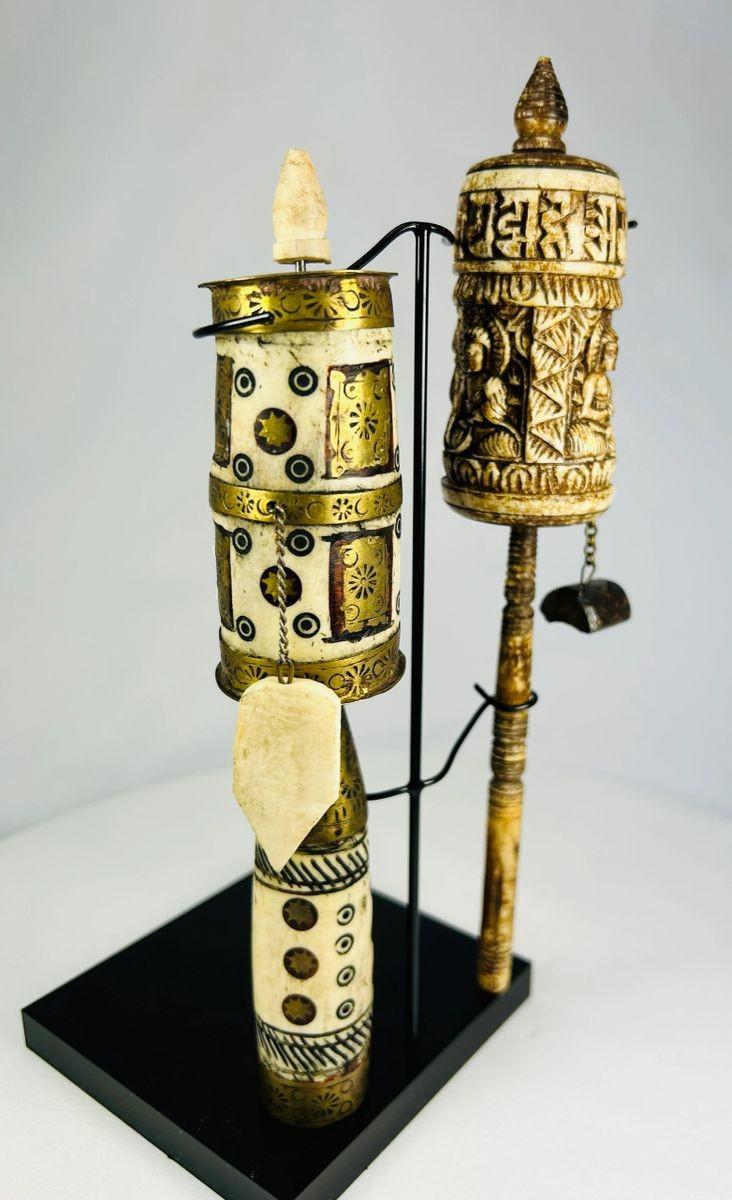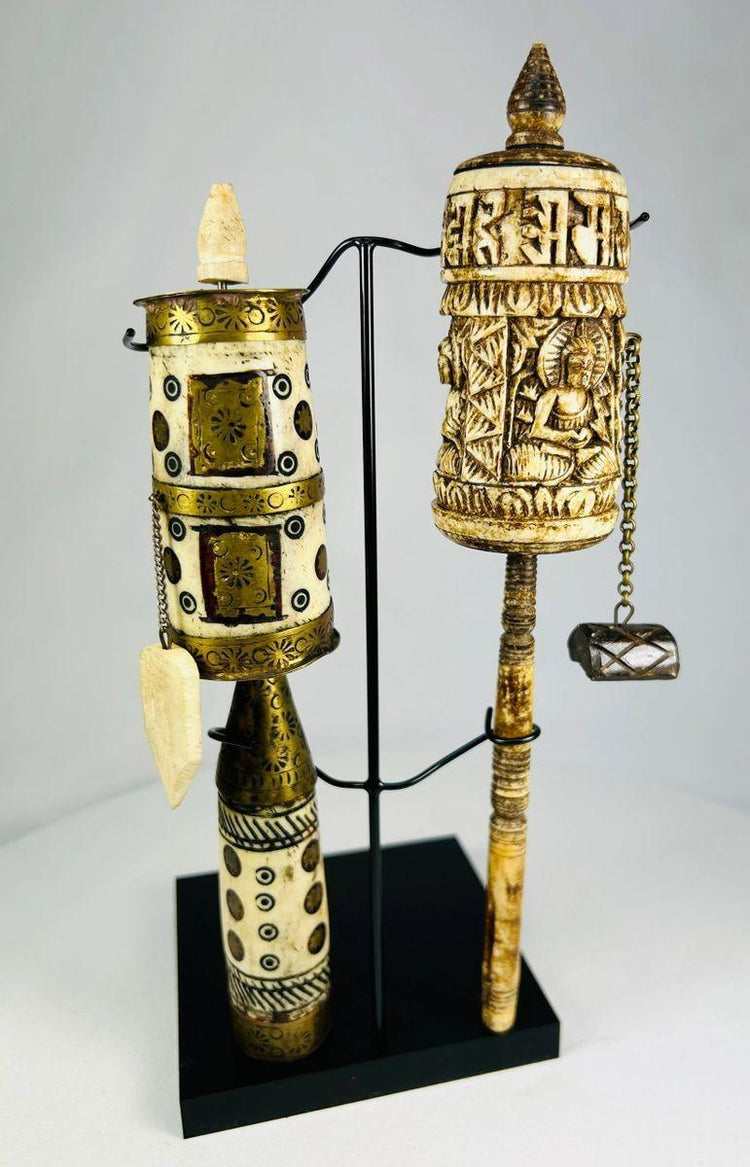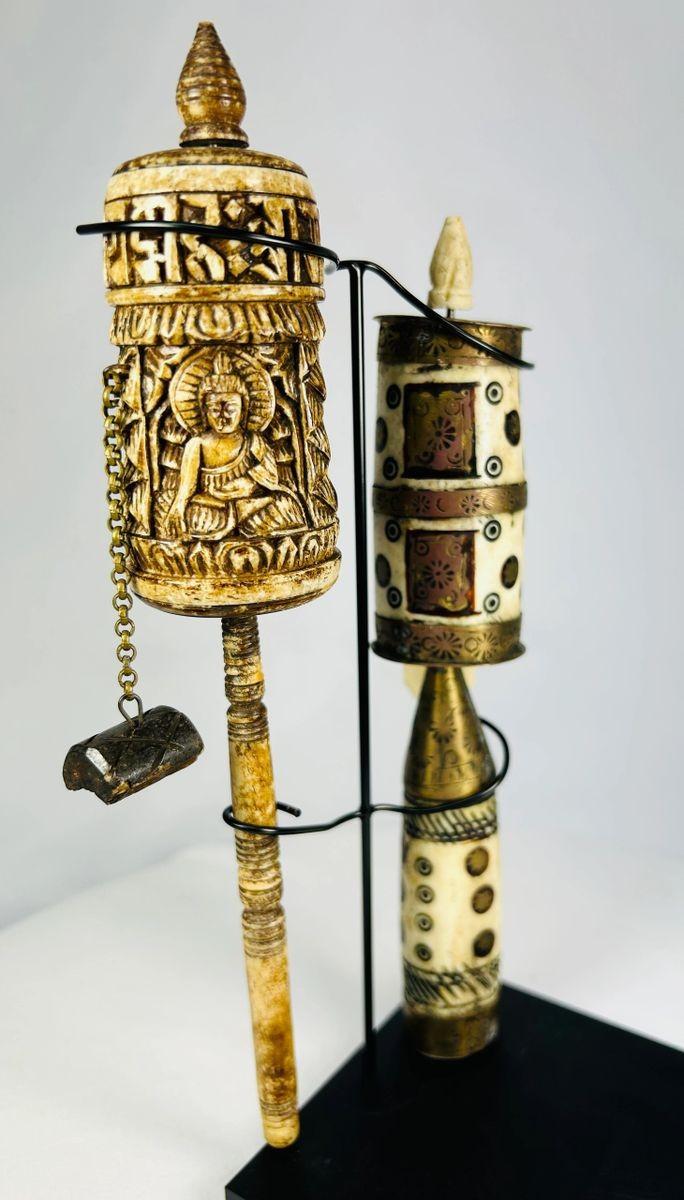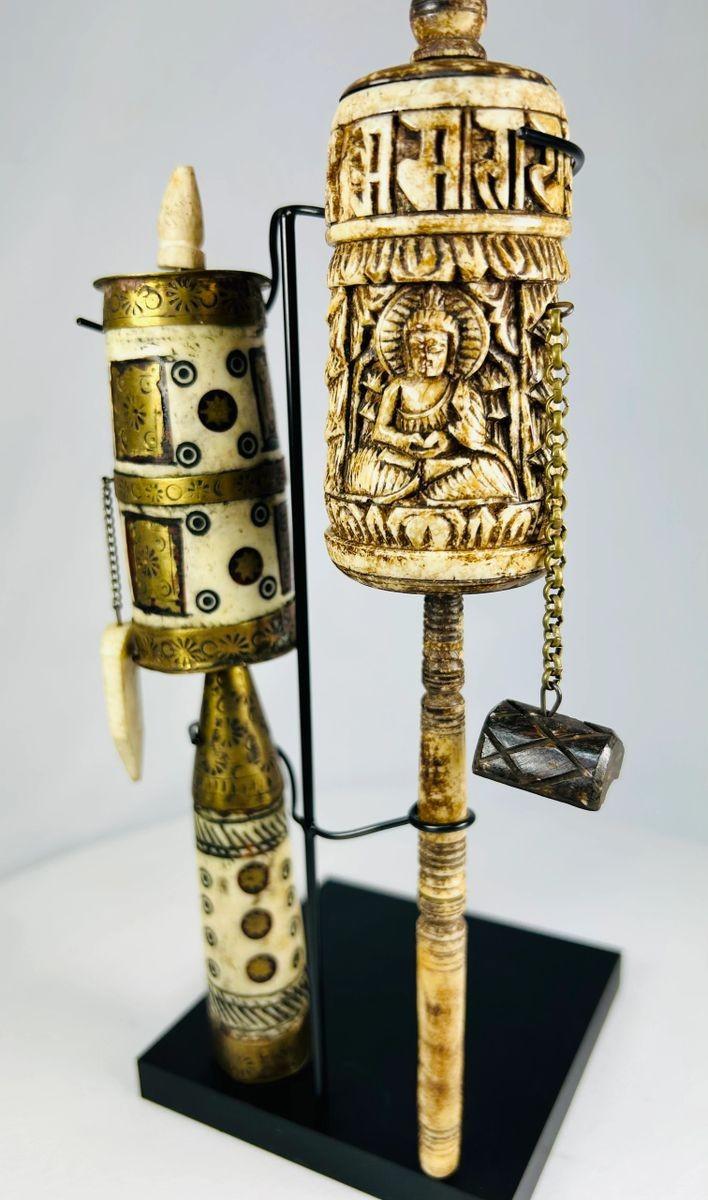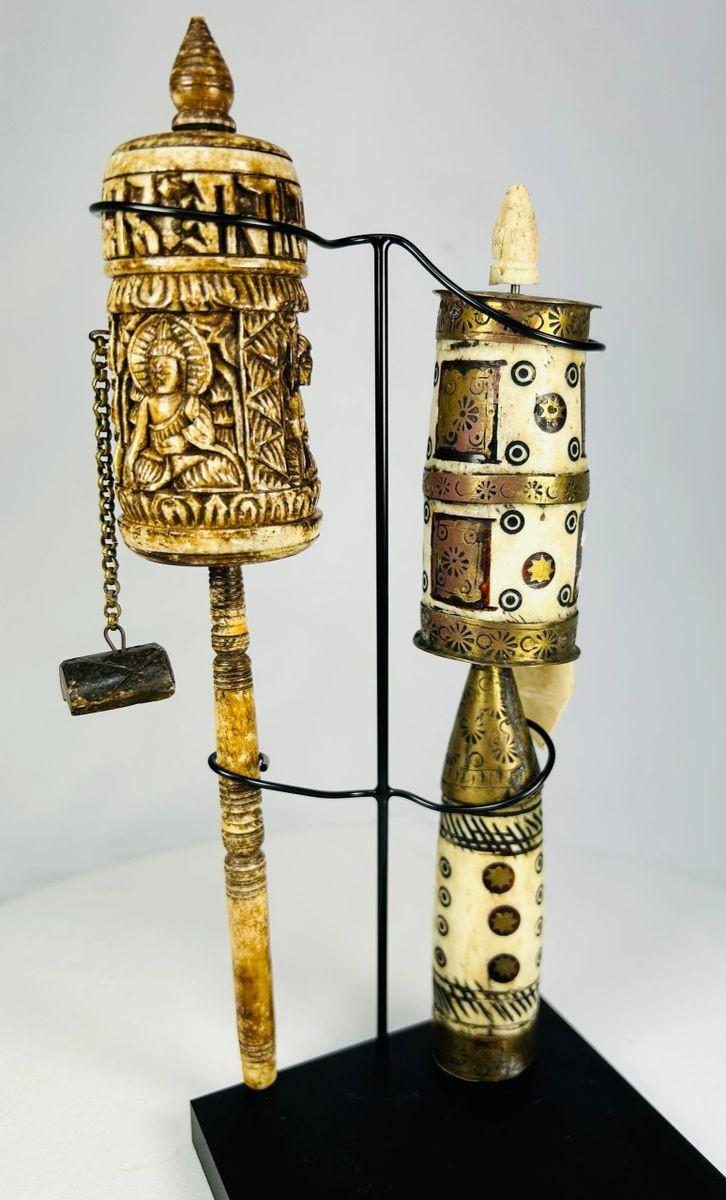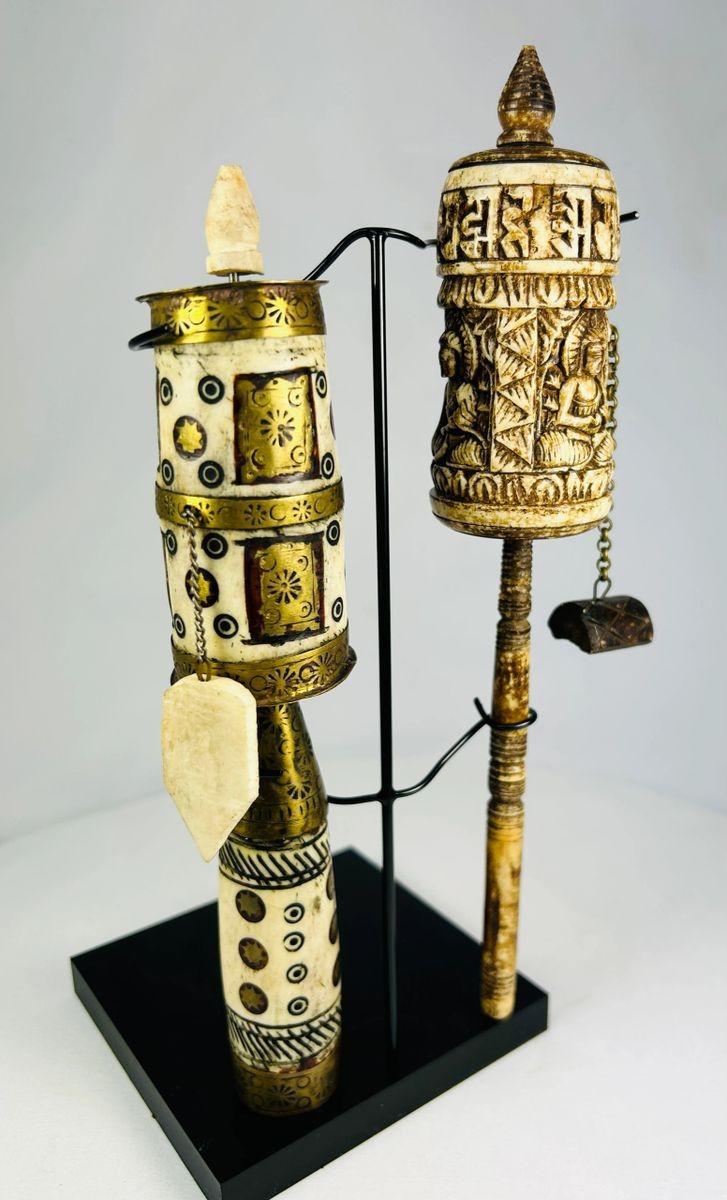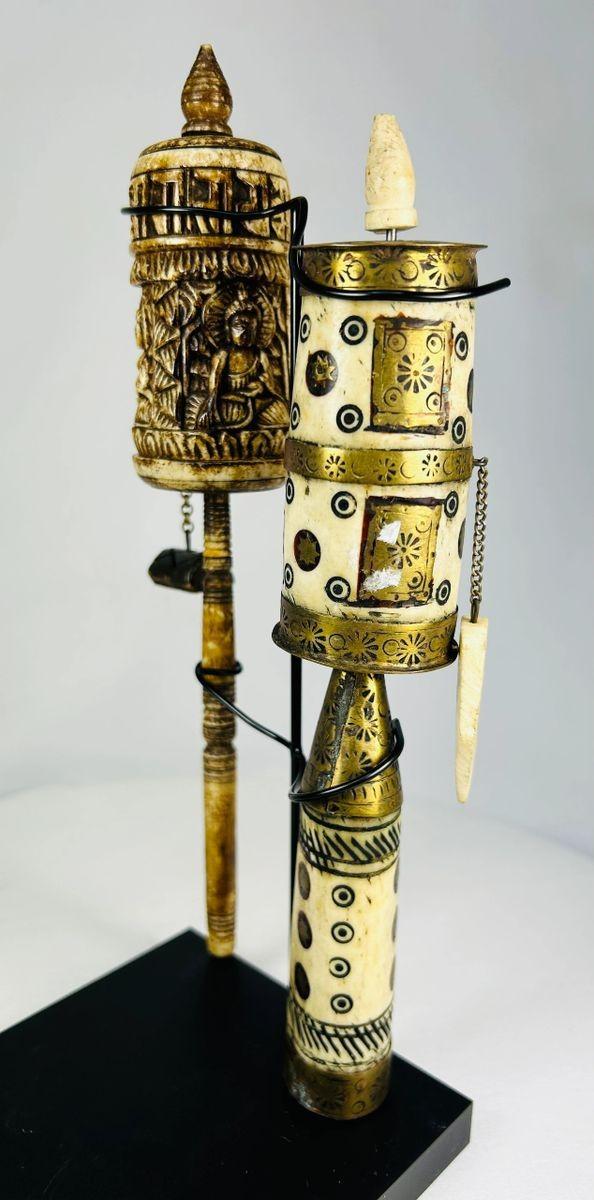Pair of Tibetan Buddhist Prayer Wheels | Hand-Carved Bone, Brass & Wood | Late 19th Century
Description
More
Less
Historical Context & Origin
Region: Tibet, Himalayan Region
Material: Hand-carved bone, brass, and wood with inlaid decoration
Period: Late 19th Century
Description
This pair of Tibetan prayer wheels represents the profound intersection of Buddhist devotion and Himalayan craftsmanship. Traditionally used in meditation and prayer, spinning such wheels was believed to accumulate merit, purify negative karma, and spread blessings. Monks and devoted practitioners filled them with mantras or sacred texts, employing them as daily spiritual tools to focus the mind and invoke divine protection.
The first wheel is adorned with brass inlays featuring floral and geometric designs, embellished with circular star-like motifs symbolizing cosmic balance. Its design is enhanced with gilded panels, while a bone counterweight ensures smooth, meditative spinning. The second wheel is distinguished by a deeply carved seated Buddha figure, encircled by mantra script and intricate floral ornamentation. A temple-like finial crowns the wheel, while the wooden handle bears traditional Tibetan carvings, completing its functional and spiritual purpose.
Features
- Intricate brass inlays with floral, geometric, and cosmic motifs
- Carved Buddha figure in meditation, encircled by sacred Tibetan script
- Gilded rectangular panels for symbolic protection
- Side chains with counterweights for smooth, balanced spinning
- Traditional wooden handles with detailed Tibetan carving
- Custom museum-quality stands included for display
Cultural Significance
Tibetan prayer wheels such as these were more than ritual objects—they embodied a portable form of Buddhist practice, allowing devotees to carry prayer into every moment of their lives. Each rotation was considered equivalent to reciting the mantras within, amplifying spiritual merit and extending blessings to the wider world. Their dual function as both sacred and artistic objects underscores the deep integration of spirituality and craftsmanship in Tibetan culture.
Condition
Both prayer wheels exhibit a rich, natural patina with minor surface wear consistent with devotional use. The aged finish enhances their authenticity and historical depth. Structurally sound and complete, each is mounted on a custom stand, ensuring both preservation and elegant display.
Dimensions (approximate)
Height: 10 in
Width: 4 in
Age
Over 120 years old
Learn More
Learn More About Tibetan & Himalayan Art
Explore Our Curated Collection of Tibetan Artifacts
Description
Historical Context & Origin
Region: Tibet, Himalayan Region
Material: Hand-carved bone, brass, and wood with inlaid decoration
Period: Late 19th Century
Description
This pair of Tibetan prayer wheels represents the profound intersection of Buddhist devotion and Himalayan craftsmanship. Traditionally used in meditation and prayer, spinning such wheels was believed to accumulate merit, purify negative karma, and spread blessings. Monks and devoted practitioners filled them with mantras or sacred texts, employing them as daily spiritual tools to focus the mind and invoke divine protection.
The first wheel is adorned with brass inlays featuring floral and geometric designs, embellished with circular star-like motifs symbolizing cosmic balance. Its design is enhanced with gilded panels, while a bone counterweight ensures smooth, meditative spinning. The second wheel is distinguished by a deeply carved seated Buddha figure, encircled by mantra script and intricate floral ornamentation. A temple-like finial crowns the wheel, while the wooden handle bears traditional Tibetan carvings, completing its functional and spiritual purpose.
Features
- Intricate brass inlays with floral, geometric, and cosmic motifs
- Carved Buddha figure in meditation, encircled by sacred Tibetan script
- Gilded rectangular panels for symbolic protection
- Side chains with counterweights for smooth, balanced spinning
- Traditional wooden handles with detailed Tibetan carving
- Custom museum-quality stands included for display
Cultural Significance
Tibetan prayer wheels such as these were more than ritual objects—they embodied a portable form of Buddhist practice, allowing devotees to carry prayer into every moment of their lives. Each rotation was considered equivalent to reciting the mantras within, amplifying spiritual merit and extending blessings to the wider world. Their dual function as both sacred and artistic objects underscores the deep integration of spirituality and craftsmanship in Tibetan culture.
Condition
Both prayer wheels exhibit a rich, natural patina with minor surface wear consistent with devotional use. The aged finish enhances their authenticity and historical depth. Structurally sound and complete, each is mounted on a custom stand, ensuring both preservation and elegant display.
Dimensions (approximate)
Height: 10 in
Width: 4 in
Age
Over 120 years old
Learn More
Learn More About Tibetan & Himalayan Art
Explore Our Curated Collection of Tibetan Artifacts
You May Also Like

